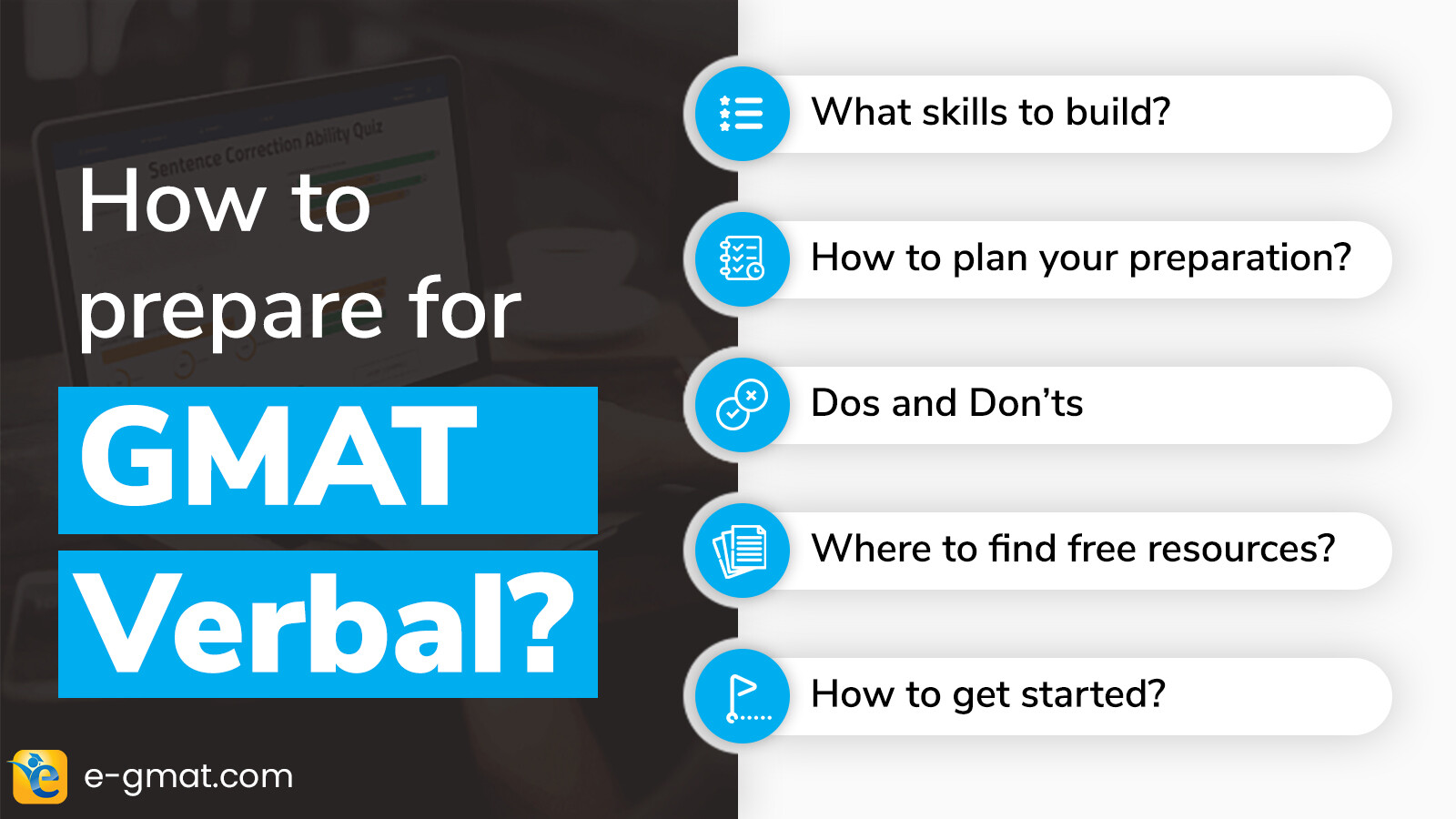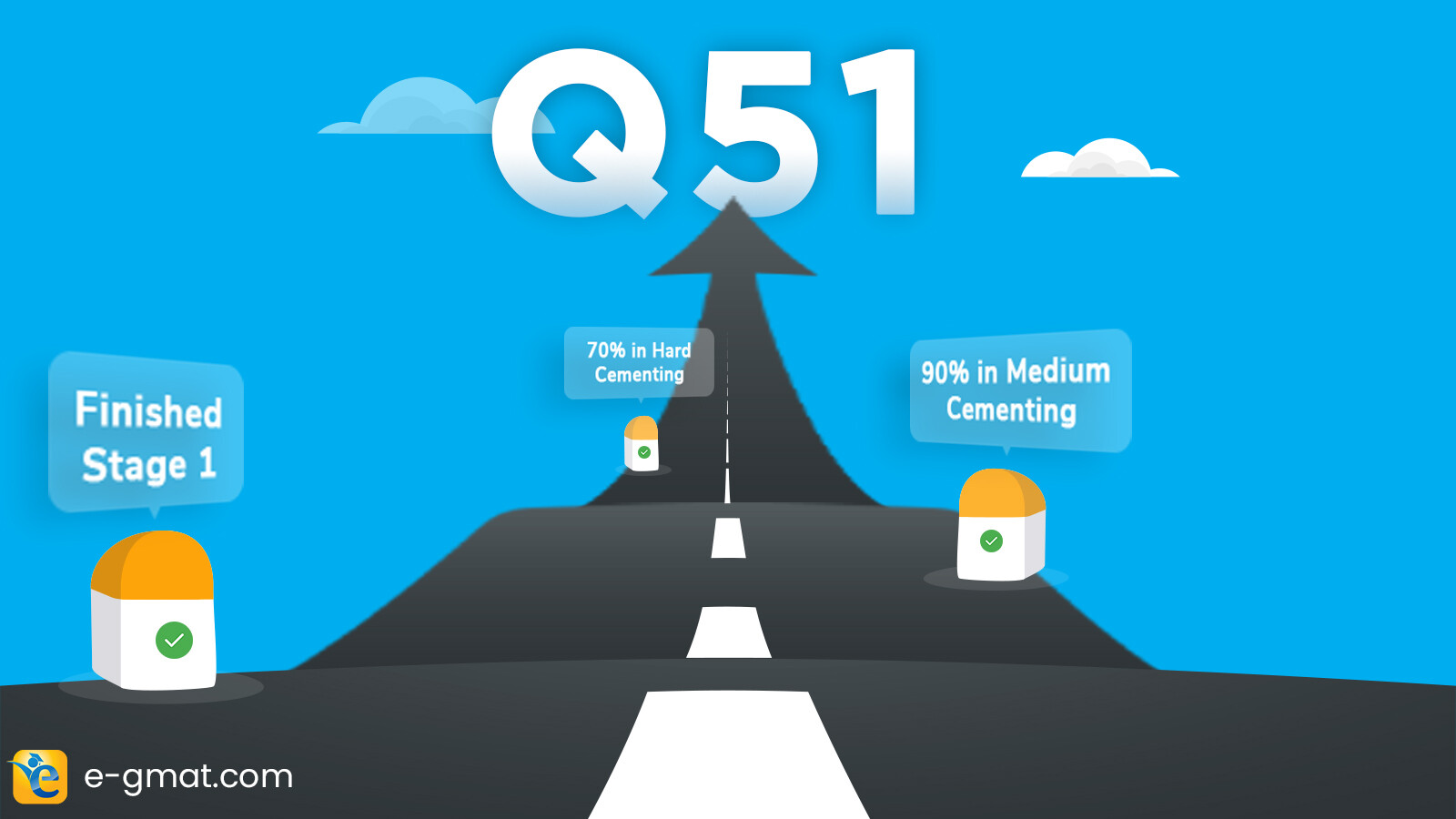How can I focus on GMAT preparation? How can I overcome procrastination?
We have stories of numerous people who aced the GMAT and went on to get an admit from their target business school.
When you imagine them, you likely think of highly energetic and focused people who never succumbed to procrastination. The truth is they all faced the ‘procrastination challenge’ but eventually beat it.
One of the reasons we share their success stories on our blog is to ensure that the GMAT aspirants learn how they beat the procrastination doom loop.
Therefore, in this article, we share our thoughts on how to focus on GMAT preparation and overcome procrastination.
So, in this article we’ll discuss the following:
- Are you really procrastinating your GMAT preparation?
- What is GMAT procrastination doom loop?
- Why you procrastinate your GMAT preparation?
- 8 steps – How to overcome procrastination and focus on GMAT preparation?
Are you really procrastinating your GMAT preparation?
Procrastination brings a really toxic emotion with it which is ‘guilt’. However, sometimes you just feel guilty because you assume you are procrastinating. Therefore, before feeling guilty you should be 100% sure that you have been procrastinating. Let me give you my example. When I started writing on this topic, this is how the word file looked and it looked the same for a considerable amount of time. Was I procrastinating? No, I wasn’t.
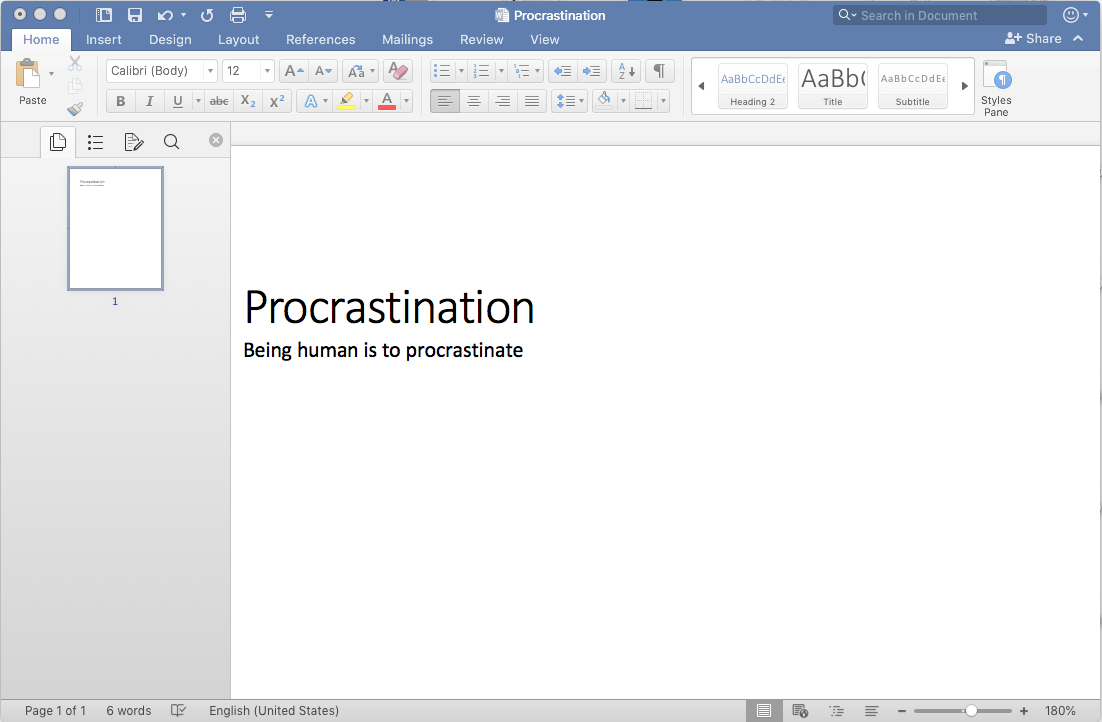
Derek Thompson in his article on TheAtlantic said that it is easy to confuse between reasonable delay and true procrastination. The former is because you truly do not have time to do a particular work and the latter is because you don’t FEEL like doing it. I wanted to write on this topic but had to postpone because of some other pressing matters.
What if I hadn’t recognized the difference and started feeling guilty? It would have affected my productivity for other work items. Therefore, it is imperative that you recognize the differences first.
What is GMAT procrastination doom loop?
- An episode of ‘The Office’ would cheer me up and then I’ll start preparing seriously for the GMAT.
- After completing season 1
- Oh!! I wasted my time on 6 episodes. I don’t feel I’ll be able to prepare today. I feel so low. Let me take a nap and then I’ll be able to focus better.
- After a 4-hour nap
- Ah, man!! I wasted so much time. I am never going to start preparing for the GMAT. But, I feel hungry too. Let me order some food and then I’ll start preparing.
Does it sound familiar? This is procrastination. You postpone important work for unimportant things. When you start doing it, you are stuck in what is called a ‘Procrastination Doom Loop’
This is what it looks like:
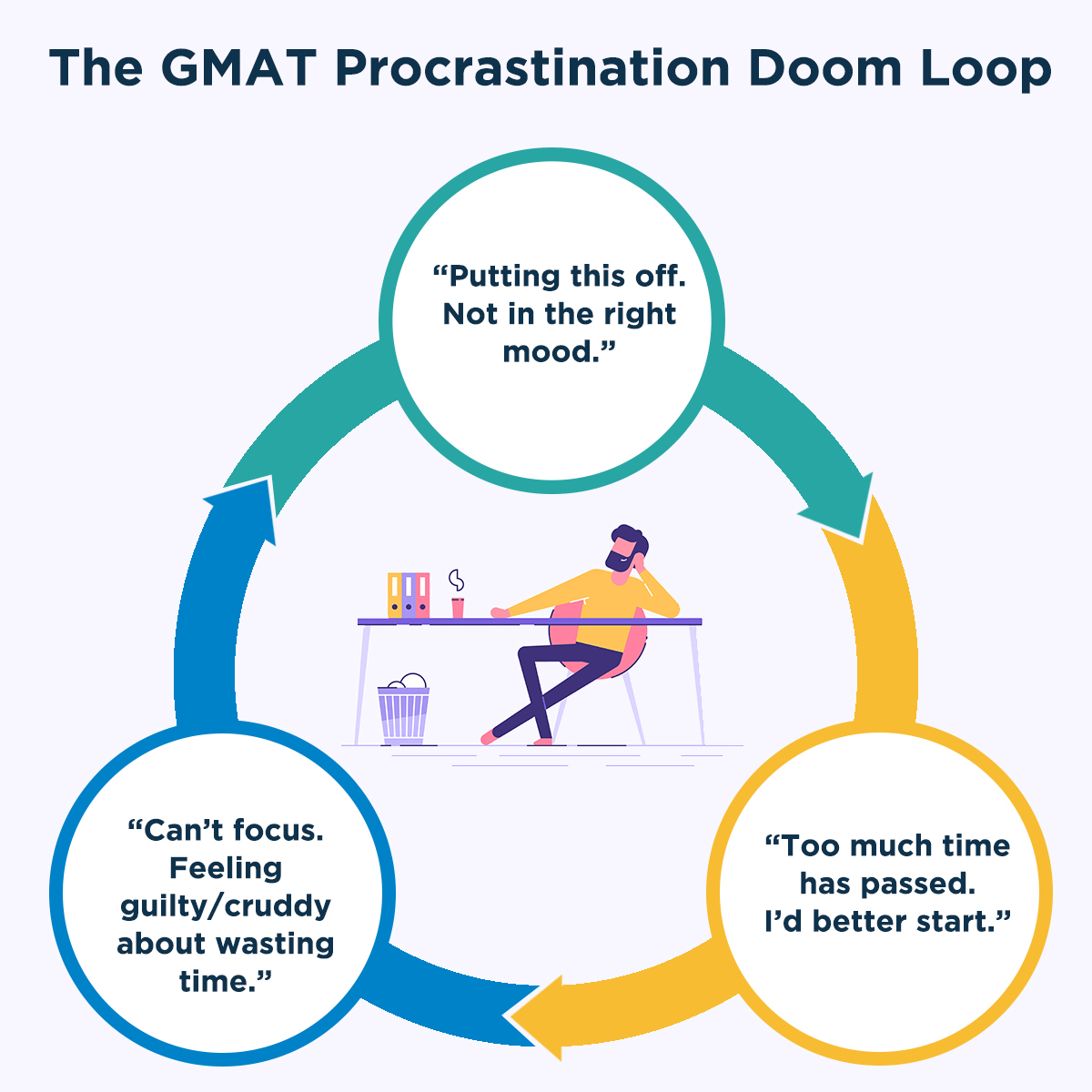
Why you procrastinate your GMAT preparation?
According to Joseph Ferrari, a psychology professor at DePaul University in an interview with Psychological Science said that people procrastinate because:
- They are not in the ‘right’ mood
- They assume their mood will change in the future
He goes on to say that procrastination has nothing to do with time management, really.
“If I have a dozen things to do, obviously #10, #11, and #12 have to wait,” says Ferrari. “The real procrastinator has those 12 things, maybe does one or two of them, then rewrites the list, then shuffles it around, then makes an extra copy of it. That’s procrastinating. That’s different.”
But, “All hope is not lost.”
You can break the procrastination doom loop cycle. Let us tell you how to do it and give wings to your GMAT preparation. (We won’t suggest Redbull)
A solid GMAT score can help you get into top business schools. Learn how to get into Harvard and Stanford.
We can help you with a personalized study plan and give you access to quality online content to prepare. Write to us at acethegmat@e-gmat.com. We are the most reviewed GMAT prep company on gmatClub with more than 2000 reviews.
Why don’t you take a free trial and judge for yourself?
How to overcome procrastination and focus on GMAT preparation?
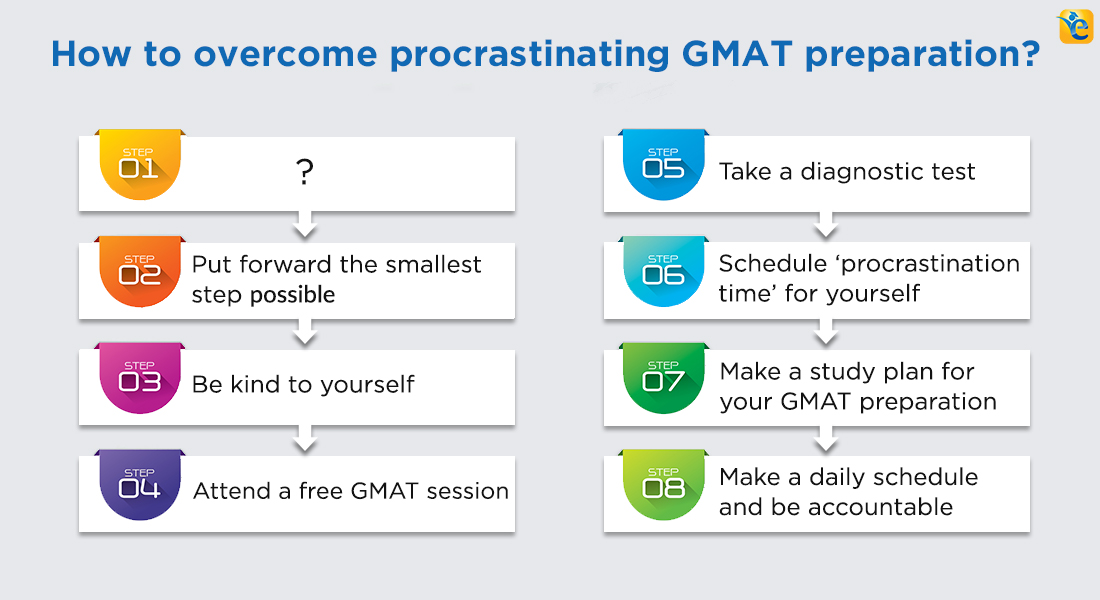
Step 2 – Put forward the smallest step possible

We have put a cloaking spell on ‘step 1,’ because if you have been a serial procrastinator, you’ll never go beyond step 1.
When you don’t feel you are in the mood to start your GMAT preparation, don’t plan for a full-throttle preparation session of 4-5 hours. Start with reading about the GMAT (our blog has plenty of information on different aspects of the GMAT) and do it for just half an hour. When you take a small step, your brain is not alerted that you’re trying to make a change. (Even the brain loves its comfort zone)
Use Instagram founder Kevin Systrom’s 5-minute rule: If you feel that GMAT preparation is too difficult (and that stress and guilt are building), tell yourself you’re only going to work on it for a few minutes. In most cases, doing the work is much easier than procrastinating. You just need a way to trick yourself into getting started.
Step 3 – Be kind to yourself
If you think of yourself as a ‘big time’ procrastinator, it’s time to donate that title to someone more deserving because you, my friend, are not a procrastinator. You are only human, and you deserve kindness, firstly from yourself. Remember you started reading about the GMAT.
Step 4 – Attend a free GMAT session
All you have to do is click on the join link and attend a free webinar. Listening to an expert and being with other prospective GMAT takers will help you relieve yourself from all that anxiety you built up from your procrastination days. This way you’ll get the ball rolling and you’ll have officially started preparing for the GMAT.
Step 5 – Take a GMAT diagnostic test
Now that you have set your focus on GMAT preparation the next thing is to identify your baseline. A GMAT diagnostic test will tell you where you are and how much effort you will have to put in to achieve your target GMAT score.
Take the free Sigma-X Mock test
Remember you might be tempted to go back to the old ways. This is another stage you’ll have to ward off procrastination and there is a very useful method to do so. Take a look at the next step.
Step 6 – Schedule ‘procrastination time’ for yourself

Yes, you read it right!! You can tame your mind by tricking it. We feel the need for something the most when it is missing from our lives. When you know you cannot procrastinate anymore the urge to go back there is intense. So, how do you procrastinate without the guilt?
Schedule some ‘procrastinating time’ for yourself. Take out half an hour from your non-GMAT prep hours and devote it to something that you enjoy doing. Take a walk, go for a run or play a sport. But, don’t start binging on Netflix. Even if you decide to watch a series, limit the consumption to 1 episode.
Try watching 3/4th or ‘one and a quarter’ episode. It will be difficult putting down the urge to watch more if you completely watch one episode and become curious about the next episode because the ending was so amazing.
When you know that you blocked this time for yourself and you can do whatever you feel like doing, you bypass the guilt associated with not preparing for the GMAT. It helps you better focus on GMAT preparation.
Step 7 – Make a study plan for your GMAT preparation
You know your baseline GMAT score now. To reach your target score you need an efficient way of preparing. The most efficient way is to make a study plan. We have created an amazing tool called the Personalized Study Planner tool which will help you create your very own GMAT study plan in less than 5 minutes.
Here are the features of this GMAT study plan tool and here is the link to the PSP tool itself.

Apart from the PSP tool, we have 4 other articles on GMAT study plans
- Benefits of a study plan: How to create a study plan
- Study plan for working professionals
- 1-month study plan
- 3-month study plan
We can help you with a personalized study plan and give you access to quality online content to prepare. Write to us at acethegmat@e-gmat.com. We are the most reviewed GMAT prep company on gmatClub with more than 2000 reviews.
Why don’t you take a free trial and judge for yourself?
Step 8 – Make a Schedule and find an accountability partner
Sticking to a schedule is essential to acing the GMAT. To make sure that you stick to your schedule ask a friend/ spouse to be your accountability partner. Everyone needs support and this support will help you better prepare for the GMAT.
Remember that as a procrastinator you tend to complete a piece of work if you do not consider it as work in the first place. Procrastination is rooted in emotions and to beat it you should try finding out what triggers those emotions.
The strategies above will help you come out of the procrastination doom loop and let you focus on GMAT preparation. Once you inculcate this habit of defeating procrastination it will serve you well not just to increase focus on GMAT preparation but also throughout your life.


